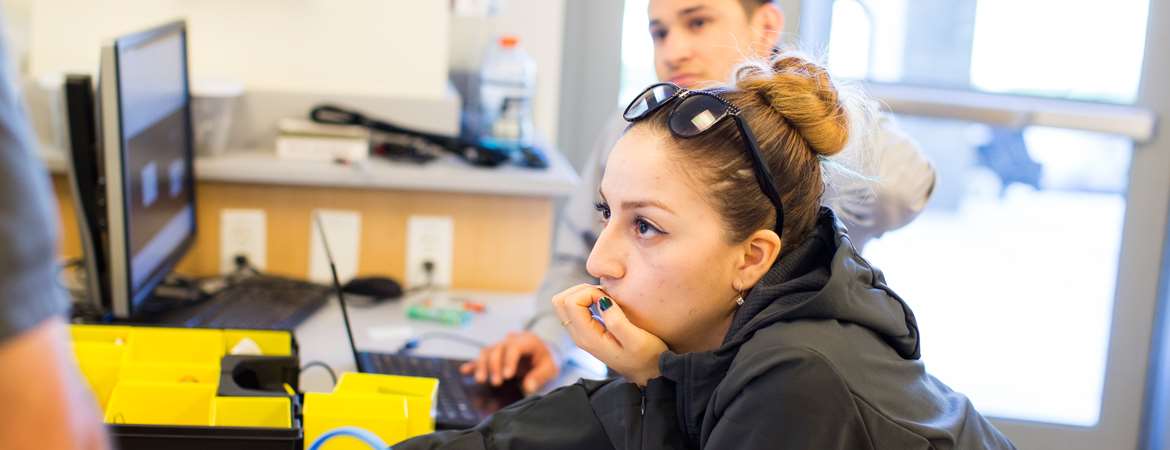
 This program is accredited by the Engineering Accreditation Commission (EAC) of ABET, under the commission’s General Criteria and Program Criteria for Mechanical and Similarly Named Engineering Programs.
This program is accredited by the Engineering Accreditation Commission (EAC) of ABET, under the commission’s General Criteria and Program Criteria for Mechanical and Similarly Named Engineering Programs.
Mechanical Engineering Educational Objectives & Learning Outcome
The B.S. degree in Mechanical Engineering will be offered by the School of Engineering through the Mechanical and Aerospace Engineering (MAE) Department Faculty.
Mechanical Engineering Educational Objectives
Within a few years of graduating, alumni of the Mechanical Engineering program are expected to:
- Practice mechanical engineering in a wide range of career options with federal agencies, private industries, and research institutes;
- Maintain lifelong learning including the pursuit of graduate education;
- Participate in research and development, and other creative activities to address technical and societal issues;
- Pursue entrepreneurial endeavors and leadership positions in their profession.
Mechanical Engineering Program Learning Outcomes
Students graduating from the program shall possess:
- An ability to identify, formulate, and solve complex engineering problems by applying principles of engineering, science, and mathematics;
- An ability to apply engineering design to produce solutions that meet specified needs with consideration of public health, safety, and welfare, as well as global, cultural, social, environmental, and economic factors;
- An ability to communicate effectively with a range of audiences;
- An ability to recognize ethical and professional responsibilities in engineering situations and make informed judgments, which must consider the impact of engineering solutions in global, economic, environmental, and societal contexts;
- An ability to function effectively on a team whose members together provide leadership, create a collaborative and inclusive environment, establish goals, plan tasks, and meet objectives;
- An ability to develop and conduct appropriate experimentation, analyze and interpret data, and use engineering judgment to draw conclusions;
- An ability to acquire and apply new knowledge as needed, using appropriate learning strategies.
Resources
- Program enrollment and graduation data are available on the Institutional Planning and Analysis website at the following links: (enrollment table) (graduation table)
- Visit the Registrar office for the latest catalog and School of Engineering courses.
Vers. 08/2025



